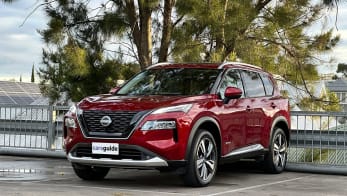Can you get the car you want? Will the dealer try to upsell you? And, most importantly of all, will you get a fair price?
Buying a new car is an exciting proposition for some, while others look at it with a sense of dread. Which is why there’s been a lot of change when it comes to buying a car in recent years, from improvements to the showrooms themselves to the way cars are priced and advertised.
Car companies design and manufacture new vehicles, but the dealers are independent businesses and can apply their own rules which may colour your opinion of a particular brand - for better or worse.
It’s an uneasy alliance for car manufacturers, because they know they need the dealers (at least for now) or have existing deals with them which can be complex to change (as General Motors demonstrated when it shuttered Holden).
This is why most car companies have been looking for new and better ways to interact with their customers. Newer brands like Tesla and Cupra have avoided dealerships altogether and sell directly to the public, and other brands have done similar programs for specific models in short supply.
Honda and Mercedes-Benz have both moved to what’s known in the industry as an ‘agency model’ where the car companies no longer wholesale the vehicles to a dealer who then sells them for the best price possible, but instead the carmaker controls all stock and therefore the price.
This means the car company can set a price and remove any need for haggling from either the dealer or the customers - the price you see on the website is the price you pay in the showroom.
While this undoubtedly doesn’t please all, with many buyers happy to try and push for a cheaper price, there’s an equal or greater number of customers who will prefer this clearer method.
These changes have seemingly pushed other brands and dealers to take a fresh approach to selling, advertising drive-away pricing online which seemingly makes the buying process easier because when you do head to the dealership you should know what you’re paying.
.webp)
But does it really work that way?
As a motoring journalist I get to drive a lot of cars, which means it’s very hard for me to justify buying a new car. Fortunately for this writer, my mother was recently in the market for a new car and I went along to help with the process and get a first-hand experience of the dealership in action in 2022.
Prior to visiting the showroom I searched up the cars she was interested in, typed in her postcode when promoted and got a drive-away price for the model she was interested in. The salesman we met was happy to assist with showing us the relevant cars and more-than-happy to grab the keys and let us take a test drive.
It’s hard to know if he was happy to be more ‘hands-off’ because I was clearly there to help my mum make her decision, but the salesman was never pushy and in fact talked us down a model grade, rather than pushing for the higher specification.
.jpg)
My 11-year-old son joined us in the process and he was able to help my mum by using the dealership’s large touchscreen with a digital configurator, which allowed him to show his grandmother what her car will look like in her preferred colour.
When the decision was made and a model and specification chosen the actual buying process was surprisingly simple. The price the salesman quoted was the same as displayed on the manufacturer’s website, but perhaps sensing the sale only needed a small push to get closed (or maybe it was because we bought late in the month and dealers often have monthly targets to hit) he spoke to his manager and immediately offered a $1500 discount without any pushing from our side.
After filling out some paperwork and paying a small deposit my mum is now simply awaiting the delivery of her new car. The whole process took roughly an hour and there was no stress or urgency from the dealership.
It was a very different experience to the last time I had to buy a car, when I felt pressured and had to haggle for a fair price, only to be then pushed into a series of upselling opportunities for accessories.

The car company we bought it off still uses the conventional sales model, as to the majority of brands in Australia, but with the likes of Honda, Cupra and Mercedes showing there are other ways to sell cars it has clearly put more pressure onto traditional dealers to change the way they do things.
Consumers now are more likely than ever before to buy high-value goods like cars online, which puts the very concept of dealers under threat. And the conventional ‘auto alley’ showroom is being challenged by ‘stores’ in shopping malls and other retail spaces.
And this is all good news for us, the car buying public, as more choices and these new ways to do things (from advertising to selling) are making it easier and more transparent to buy a new car. And personally, I don’t miss the haggling.







.jpg)


.jpg)

.jpg)



.jpg)






.jpg)
.jpg)

.jpg)

.jpg)


Comments